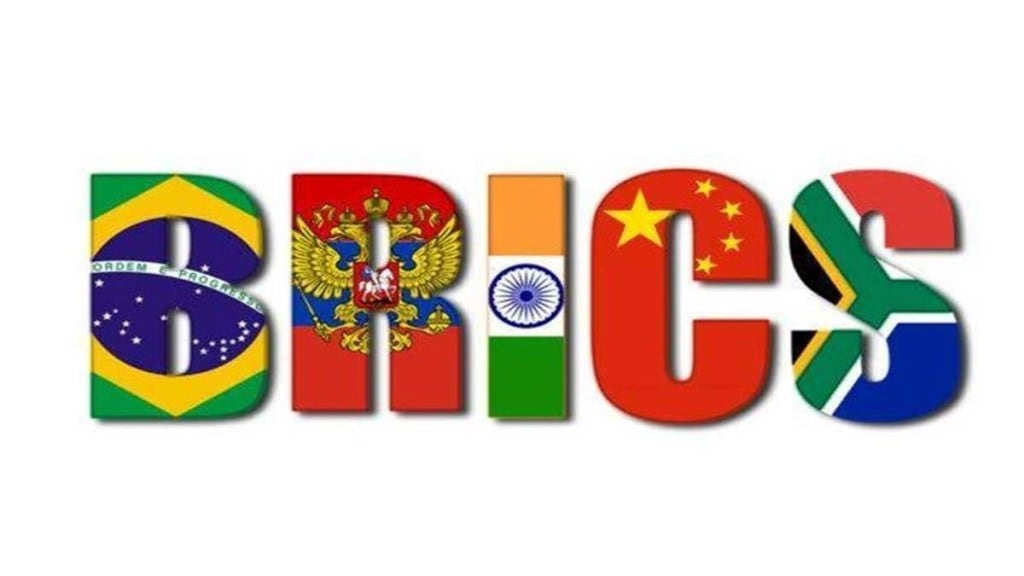As anticipation builds for the upcoming BRICS summit in August, the South African chairmanship hosted a crucial virtual meeting of BRICS Foreign Ministers. The meeting focused on expanding the influential economic grouping, with a notable 19 countries expressing interest in joining, ranging from Argentina to Iran and Saudi Arabia to Egypt. With a robust agenda centered around institutional development and strategic partnerships, BRICS continues to gain momentum as a champion of the developing world, accentuating its significance in global affairs.
BRICS: A Force to Reckon with on the Global Stage
The BRICS bloc, comprising Brazil, Russia, India, China, and South Africa, commands substantial economic might and geopolitical influence. Representing more than 41 percent of the world’s population and boasting a combined GDP exceeding US$24 trillion, BRICS has emerged as a significant player in the global economic landscape. Its collaborative approach to international affairs challenges the dominance of traditional economic powers.
Uncertainty Surrounding Chinese Foreign Minister’s Attendance
The absence of the Chinese Foreign Minister, Qin Gang, at the BRICS Foreign Ministers’ meeting adds intrigue to the proceedings. China’s participation is critical for addressing key issues, including the bloc’s expansion and its role in shaping the future of BRICS. As the world’s second-largest economy and a major player in international trade and investments, China’s stance significantly impacts the group’s direction and global influence.
South Africa’s Role as Chair and African Representative
As the chair of BRICS, South Africa holds the responsibility of steering discussions towards fruitful outcomes and fostering consensus among member nations. Being the only African member of the bloc, South Africa brings unique perspectives on addressing the continent’s challenges and promoting Africa’s integration into the global economy.
Questions Surrounding Russian President Putin’s Attendance
With an arrest warrant issued against Russian President Vladimir Putin by the International Criminal Court, concerns arise about his potential absence at the summit. Given Russia’s significant role in shaping the BRICS agenda, his non-attendance may have implications on the group’s dynamics during the summit.
Institutional Development and Strategic Partnerships
The agenda of the virtual meeting emphasized the institutional development of BRICS and the need to strengthen strategic partnerships among member states. This underscores the bloc’s commitment to enhancing cooperation and achieving high-quality development, while solidifying its global standing.
China’s Expectations for the 15th BRICS Summit
During an extraordinary meeting of BRICS foreign ministers via video link, Chinese Vice Foreign Minister Ma Zhaoxu expressed eagerness to collaborate with BRICS partners. He highlighted the importance of in-depth discussions on key issues during the upcoming 15th BRICS Summit in South Africa, aiming to achieve fruitful outcomes and elevate cooperation to new heights.
Expanding the BRICS Club
The question of expanding the BRICS bloc has taken center stage on the summit’s agenda. As an increasing number of countries seek to counter the perceived hegemony of the US-led West in global affairs, numerous nations, including Argentina, Iran, Saudi Arabia, Egypt, and more, have expressed keen interest in joining the bloc.
BRICS: A Champion of the Developing World
South African officials aspire to position BRICS as a champion of the developing world, advocating for the interests of emerging markets and developing countries. This vision aligns with the aspirations of numerous nations eager to participate in the bloc and reflects BRICS’ growing importance in addressing global challenges.
The virtual meeting of BRICS Foreign Ministers serves as a significant prelude to the forthcoming 15th BRICS Summit in South Africa. With a focus on institutional development, strategic partnerships, and championing the developing world, BRICS continues to gain prominence in global affairs. The bloc’s potential expansion, coupled with South Africa’s pivotal role as chair and representative of Africa, showcases its commitment to shaping the trajectory of international relations. As BRICS nations unite, they are poised to contribute significantly to global progress and cooperation in an ever-changing world.

